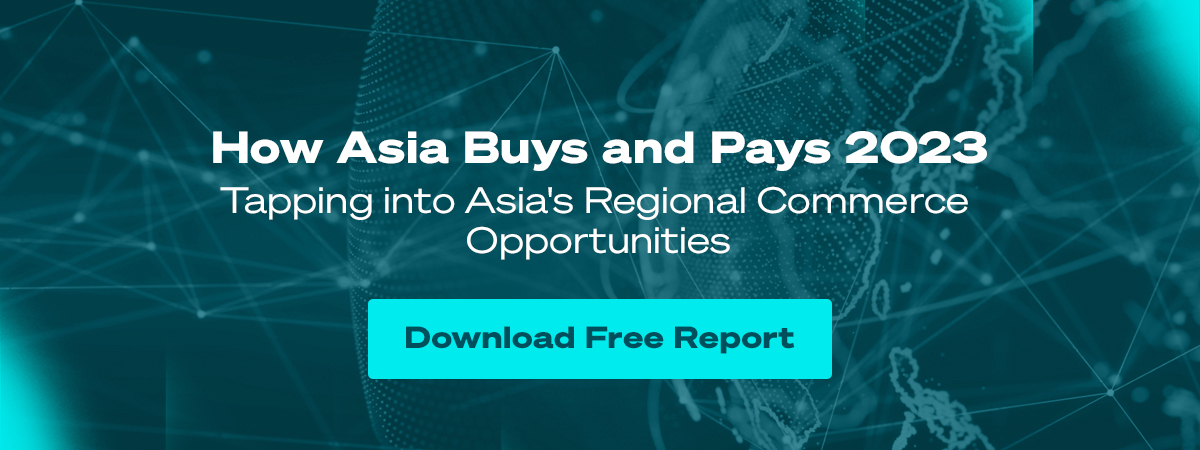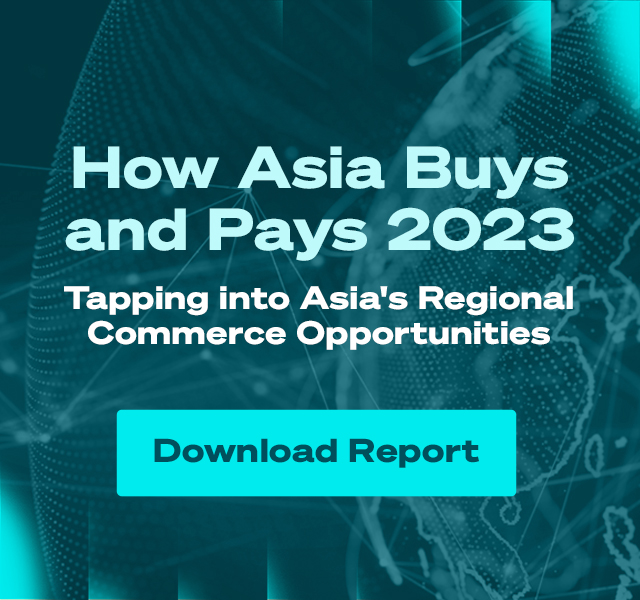
Investing in Asia's Fintech Innovations with Melissa Guzy, Co-Founder and Managing Partner at Arbor Ventures
Welcome to our Payments Powerhouses series, where we discuss current trends with the movers and shakers in the fintech industry.
In this episode, we chat with Melissa Guzy from Arbor Ventures.


About Melissa Guzy
Melissa Guzy is the co-founder and managing partner at Arbor Ventures, a global fintech venture capital firm with offices in Shanghai, Hong Kong, Tokyo, and Tel Aviv. Arbor Ventures was an investor of 2C2P and has investments in Asia’s leading fintech companies.
Melissa has more than 25 years of experience as an entrepreneur and investor, with expertise in global technology innovations in Asia and Silicon Valley.
Joining us as part of 2C2P’s 20th anniversary special, Melissa shares her insights on:
- Key differences between fintech in Silicon Valley and Asia
- Building a global fintech VC firm
- How the payments industry has evolved, from the perspective of a global fintech-focused venture capitalist
- How Asia will lead the cause for Central Bank Digital Currencies (CBDC)
- What qualities venture capitalists look out for in potential companies and founders


Key Differences between Fintech in Silicon Valley and Asia
You have spent the last decade focusing on fintech, big data, digital commerce, and venture investments in Asia. What sparked your interest in venture capital, and what made you focus most of your work in Asia?
Melissa: I’ve been in venture capital since the 2000s and moved to Asia in 2007. My love affair with financial services started in about 2008, and it was sparked when I saw the innovation that was happening in and around Asia in payments especially.
Asia has led the way in innovation and financial services, whether it’s how payments have been done in China with Alipay and WeChat pay or insurtech in insurance. Being able to adjudicate claims and get them settled in real-time is not the next big thing, as they’d like to say in the US. It has actually been happening in Asia for quite some time.
What are some of the key differences you have observed between Silicon Valley and Asia?
In terms of fintech, Asia has led the world in innovation. It’s not about legacy because Asia does not have that legacy. It’s about finding low-cost solutions that can be applied across the entire spectrum of the market. Companies in Asia have been very focused on business innovation, in particular, how to make things simpler, more inclusive, and lower cost.
Fintech in the US, however, is pretty outdated. People in the US still use checks, and there’s no national real-time payment system yet. As for innovation in banks, there’s been much more innovation in Asian banks than in US banks.
The environment is also very different in the US and in Asia. Asia will continue to lead the world in fintech innovation.
What prompted you to start Arbor?
It wasn’t a natural progression, I was pretty happy where I was before that. But when I was living in Asia and doing deals for a firm in Silicon Valley, it became apparent that there was a big disconnect.
You can’t invest the same way you do in Silicon Valley as in Asia. This was evident every time I had to get on a plane to go to Silicon Valley to try to explain to people in the US why Asia is different and why we are progressing differently compared to the US. That was when I made the decision to start Arbor and have its foundation in Asia.
Building a Globally Connected Venture Capital Firm
You described Arbor as globally connected with a fintech focus. How do you come up with these guiding principles for your venture work?
For us, it’s about knowing and seeing what’s in the world today. We’ve been really fortunate to have our roots in Asia where we have seen so much innovation. It’s also about connectivity. Having global connectivity allows us to connect companies, whether they’re from the Middle East or the US.
As a globally connected venture capital firm, our key focus is to help startups build their dream. I also feel that what’s important is that when we do see something somewhere else, we give them ideas or information so that they have visibility on what’s happening across the world.
How the Payments Industry Has Evolved, From the Eyes of a Venture Capitalist
Payments is listed as one of the key sectors on Arbor Ventures’ website. From the perspective of Arbor, how has the payments industry evolved?
Payments has evolved tremendously. I remember the time when I had just moved from Hong Kong to Singapore and was rushing home to pay someone who was doing work at the apartment.
They said, “No, you don’t need to come. You can use PayNow.” I said, “What’s PayNow?” and I realised that I just needed a mobile phone number and I could pay anyone immediately. I was amazed at the convenience.
Other than real-time payments, it’s also how the payments industry has evolved to having alternative payments for payment processing, which is something that 2C2P was really successful at, to Buy Now Pay Later (BNPL) and other payment solutions.
What is one key theme we will see in the payments industry in future?
We will move to a world of Central Bank Digital Currencies (CBDCs), which will make new payment rails and new settlement systems. I think, in the next 10,15 years, we are going to see enormous innovation around payments as CBDCs continue to take off.
Asia is likely to lead the cause for CBDCs. The experiment done on the Bank for International Settlements related to oil is just the beginning. Once we see hedging contracts without the dollar, we will start seeing it for other commodities and even for enterprise and consumer usage. This will very much change how payments are done.
What Venture Capitalists Look Out For in Founders
What are the qualities you look out for to identify good leaders to invest in?
We’ve done a lot of work around this. Besides common traits such as good judgement and reason, decisiveness and more, one of the key areas we focus on is how responsive and open-minded they are to market feedback and bringing it back to the company to incorporate it into the product. It sounds simple, but it’s not that simple to execute.
We focus a lot on the product development process, how they think about product development, what’s failed, what’s worked, and really then, how the CEO interacts with his team. We have a question list we’ve developed with the help of our psychologist that we ask during meetings to extract some of these personality traits.
One of the questions on the list is, “Do you go on vacation to the same place every year?”. If the answer is yes, you're probably not that startup CEO. I thought that was kind of interesting as we went through the exercise.
Another question that is a little bit unusual is, “Do you talk about work all the time?”. Learning to be emotionally balanced is also important. But you have to be gritty. You have to have perseverance; failure is not an option. You also have to find a way to succeed. Our best entrepreneurs are that way.
We also look out for what drives them. People have to be mission-driven, not money-driven. I'll give you a really good example. If somebody came into the office and said, “Melissa, we're raising our Series A, and we're going to go public, and Goldman Sachs is going to take us public.” That usually meant there was not a second meeting, right?
I always just took it as that. But after working with a psychologist, I realised it was because they were not mission-driven. Deep down, the real reason we didn’t back them or have another meeting was that they were money-driven, they weren't mission-driven. And I find the best CEOs are mission-driven. To achieve something more than just the financial reward that comes with it.
Finally, to wrap up this chat, can you share stories about 2C2P in celebration of our 20th anniversary this month?
Well, first of all, I have to tell you how I met Aung. I couldn't be more proud to have backed and supported him over the years.
We were looking at a different company in Thailand at that time, and we realised that 2C2P was processing their payments.
I reached out to Aung on LinkedIn and said, “Hey, I'd be really interested in meeting you. You have a very interesting company and I'd be happy to come down and see you.” He said, “Okay, I'm available on Sunday.” I got on a plane and flew to Bangkok to meet him.
Aung spent the next year getting to know me and trying to decide whether Arbor would be a good fit as an investor. Then, Arbor Ventures invested, and I would say I have nothing but the utmost respect for Aung and what he's built.
The reason is that he has a deep understanding of the payment network in Southeast Asia. He also understands the difference between what exists and what's possible and has a great vision for building next-generation products.
He was also able to build a sustainable team over the years and a company profitably without having to raise exorbitant amounts of money. So, I always use him as the best example of somebody with grit, perseverance, focus, dedication, and commitment to his team. Aung is a poster child for that.
Explore insights from other movers and shakers in fintech
Enjoyed this? Check out our other 20th Anniversary Payments Powerhouses interview with Sirinun Jiradilok, Senior Vice President of Digital Engagement and FinTech Innovation at UOB Thailand, on building sustainable banking solutions.
. . .
Payments Powerhouses is a monthly editorial series interviewing the movers and shakers of the payments and wider fintech industry in Southeast Asia and beyond. If you’d like to be featured on Payments Powerhouses, reach out to us here.

